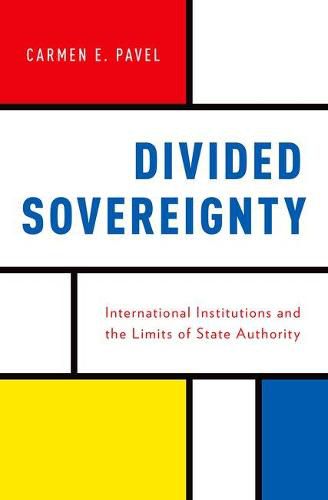Readings Newsletter
Become a Readings Member to make your shopping experience even easier.
Sign in or sign up for free!
You’re not far away from qualifying for FREE standard shipping within Australia
You’ve qualified for FREE standard shipping within Australia
The cart is loading…






The question of how to constrain states that commit severe abuses against their own citizens is as persistent as it is vexing. States are imperfect political forms that in theory possess both a monopoly on coercive power and final jurisdictional authority over their territory. These twin elements of sovereignty and authority can be used by state leaders and political representatives in ways that stray significantly from the interests of citizens. In the most extreme cases, when citizens become inconvenient obstacles in the pursuit of the self-serving ambitions of their leaders, state power turns against them. Genocide, torture, displacement, and rape are often the means of choice by which the inconvenient are made to suffer or vanish. In Divided Sovereignty, Carmen Pavel explores new institutional solutions to this abiding problem. She argues that coercive international institutions can stop these abuses and act as an insurance scheme against the possibility of states failing to fulfill their most basic sovereign responsibilities. She thus challenges the longstanding assumption that collective grants of authority from the citizens of a state should be made exclusively for institutions within the borders of that state. Despite worries that international institutions such as the International Criminal Court could undermine domestic democratic control, citizens can divide sovereign authority between state and international institutions consistent with their right of democratic self-governance. Pavel defends universal, principled limits on state authority based on jus cogens norms, a special category of norms in international law that prohibit violations of basic human rights.
Thoughtfully conceived and forcefully argued, Divided Sovereignty will challenge what we think we know about the relationship between international institutions and the pursuit of the fundamental requirements of justice.
$9.00 standard shipping within Australia
FREE standard shipping within Australia for orders over $100.00
Express & International shipping calculated at checkout
The question of how to constrain states that commit severe abuses against their own citizens is as persistent as it is vexing. States are imperfect political forms that in theory possess both a monopoly on coercive power and final jurisdictional authority over their territory. These twin elements of sovereignty and authority can be used by state leaders and political representatives in ways that stray significantly from the interests of citizens. In the most extreme cases, when citizens become inconvenient obstacles in the pursuit of the self-serving ambitions of their leaders, state power turns against them. Genocide, torture, displacement, and rape are often the means of choice by which the inconvenient are made to suffer or vanish. In Divided Sovereignty, Carmen Pavel explores new institutional solutions to this abiding problem. She argues that coercive international institutions can stop these abuses and act as an insurance scheme against the possibility of states failing to fulfill their most basic sovereign responsibilities. She thus challenges the longstanding assumption that collective grants of authority from the citizens of a state should be made exclusively for institutions within the borders of that state. Despite worries that international institutions such as the International Criminal Court could undermine domestic democratic control, citizens can divide sovereign authority between state and international institutions consistent with their right of democratic self-governance. Pavel defends universal, principled limits on state authority based on jus cogens norms, a special category of norms in international law that prohibit violations of basic human rights.
Thoughtfully conceived and forcefully argued, Divided Sovereignty will challenge what we think we know about the relationship between international institutions and the pursuit of the fundamental requirements of justice.